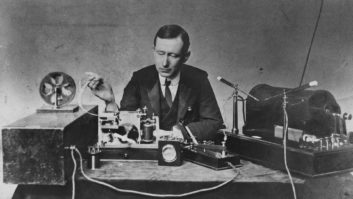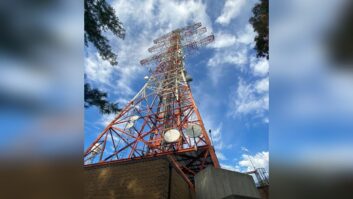Sites Like the IBB Shortwave Facility At Kavala, Greece, Will Be Missed
The Broadcasting Board of Governors, which oversees U.S. government funded international broadcasting, has decided to shift resources to newer media, such as satellite-delivered television, and to languages associated with the war on terror.
The BBG intends to close Voice of America’s News Now, its global English service, along with five other language services and radio, while keeping television, in six additional languages. International Broadcasting Bureau relay stations in Greece have already shut down.
The cuts are part of the proposed fiscal 2007 budget of $671.9 million for U.S. international broadcasting. It has not announced a specific date for the closure of VOA News Now, however it would probably happen by Oct. 1, when the new fiscal year begins.
When the power is cut
These days, international broadcasters achieve their largest audiences by placing programs on television or FM stations inside the target country. For cross-border delivery of detailed news and current affairs reports, a Web site is the most efficient means.
But in closed societies, and in more open societies when they descend into crises, these local television and FM relays are not available, and Web sites are blocked.
Some recent examples: The State Department’s human rights report for Togo reported that in February 2005 “the Voice of America affiliate in the northern city of Sokode, Radio Tchaoudjo, had its power cut just before each VOA news segment.
Power was always restored 30 minutes after the scheduled start of the thrice-daily broadcasts. Togo would turn off electricity to the local FM station during the half hour it rebroadcast.” In February 2006, according to Reporters Without Borders, Uganda joined the expanding list of countries blocking Web sites, the first sub-Saharan country to do so.
Shortwave can also be blocked, by way of jamming, but rarely with complete success. This is because shortwave is the only medium of international broadcasting granted immunity from interdiction by the laws of physics.
Signals from distant broadcasters are often heard with stronger signals than closer jamming transmitters. A shortwave broadcaster can usually overcome jamming by transmitting on as many frequencies as possible, from as many locations as possible.
For VOA, this is becoming less possible.
The United States needs the ability to deliver a strong shortwave signal into any part of the world at any time.
This is why the IBB shortwave facility at Kavala, Greece, will be missed. The site – off the air as of March 26 – was an amazing performer.
On my VOA program “Communications World,” which ran from 1995 to 2002, it was not uncommon for me to be heard by listeners from New Zealand to North America, who were listening on the same Kavala frequency at the same time. Kavala is strategically located one or two ionospheric hops away from countries where domestic media are suppressed, or could be in the future.
Global shortwave coverage?
Without Kavala, or some replacement facility in the same region, VOA’s global coverage is in question. The IBB is left with no major shortwave site between Morocco and Sri Lanka.
VOA’s shortwave transmitters may be needed in the future for languages now most effectively served by local television and FM rebroadcasts, when those relays are taken off the air because of a crisis or a new dictator in the target country. For now, these shortwave transmitters can usefully be occupied with a global English service.
The global English-speaking community consists of the elites of virtually every country, as well as expatriates of the United States and other countries, workers abroad, international students, Peace Corps and other volunteers, NGO employees, missionaries, seafarers, diplomats, military personnel and so on. This is perhaps the most influential audience in the world, and they make the effort to be well informed.
Many of these people live or travel in areas where CNN International or BBC World are not available on the local cable television system, or where Internet access is unsatisfactory. And so they carry along their shortwave radios.
This audience can’t be served by VOA if the broadcaster does not have a global English service. VOA may not be able to deliver programming to the global English-speaking community, nor to future overseas hotspots, if it has a gaping hole in its global shortwave network.
RW welcomes other points of view.






